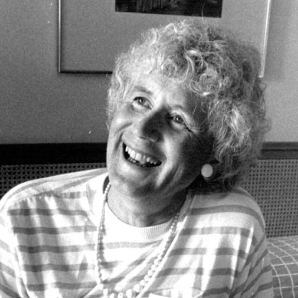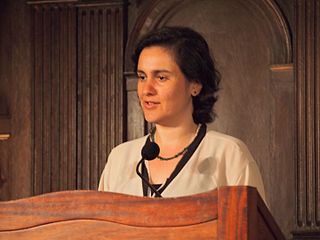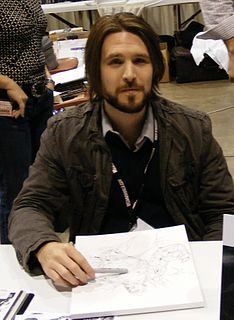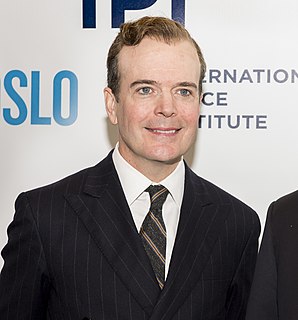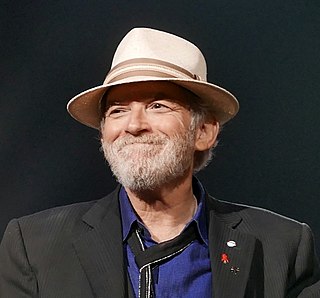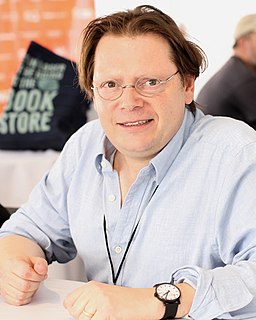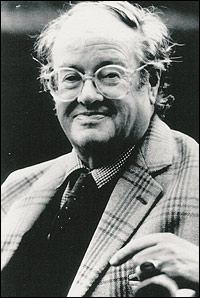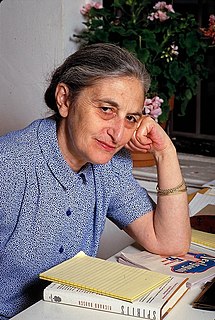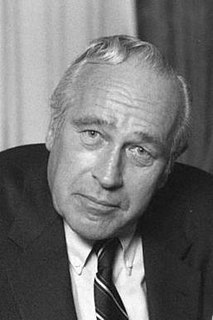Top 276 Dickens Quotes & Sayings - Page 4
Explore popular Dickens quotes.
Last updated on December 4, 2024.
I think poets are supposed to be writing for television and film. I grew up in the day of early TV that was so raw and funny, and I think we're in the next important moment of television, where it's really telling the epic of the culture like Charles Dickens was doing in the 19th century with his serialized novels.
Something that comes to us, some gym shoe that comes to us as a result of child labor from a brutal dictatorship, where people do not have basic freedoms, it wouldn't bug me to tax the living Dickens out of that thing or even to forbid its importation whatsoever. But that's a moral question, not an economic question.
No self-respecting feminist could argue with the claim that the novel is more likely to accept existing power structures than not. But there's a vast difference, surely, between Dickens saying Indians should be exterminated and a Dave Eggers writing eloquently about the NSA, but not being as outspoken on American military power abroad.
Everyone finds their own version of Charles Dickens. The child-victim, the irrepressibly ambitious young man, the reporter, the demonic worker, the tireless walker. The radical, the protector of orphans, helper of the needy, man of good works, the republican. The hater and the lover of America. The giver of parties, the magician, the traveler.
'Joker' was a violent, dark, and brutal book, so I wanted to do something a little less heavy. I played around with the idea of a children's book, and that eventually became 'Noel.' And I just kept finding these parallels between things I could do with Batman and Charles Dickens' 'A Christmas Carol.'
When I went to college - when I read Shakespeare or Dickens or Scott - I just felt that, as a citizen of England, a British citizen, this was as much my heritage as any schoolboy's. That is one of the things the Empire taught, that apart from citizenship, the synonymous inheritance of the citizenship was the literature.
By isolating the issues of race, gender, sexual orientation, climate change, environment, governance, economics, catastrophe and whatever other problems the present embodies or the future may bring, science fiction can do what Dickens and Sinclair did: make real the consequences of social injustice or human folly.
It struck me that the popularity of Christmas is a matter of web-like consciousness. Childhood conditions us to relax and expand at Christmas, to forget petty worries and irritations and think in terms of universal peace. And so Christmas is the nearest to mystical experience that most human beings ever approach, with its memories of Dickens and Irving's Bracebridge Hall.
We live in a culture that insists on "moving on" (even while our loyalty to and love of the franchise and the sequel give away a larger loopiness). But I tend to dwell or obsess or meditate, and I came back to, for instance, the figure of Dickens's "Miss Havisham" with some (self) recognition if not relief.
When Dickens arrives in the United States in November of 1867, he's already in questionable health. So by the end of the trip, he was really in failing condition, and really, he would never recover completely after this point, and you could sort of draw a straight line to his ultimate decline and death.
I was a complete and typical only child. I was bookish, and sport was out of the question anyway. I had read all of Dickens and most of the volumes of Arthur Mee's Children's Encyclopedia by the time I was 11. The only time I was popular at school was the day I won the debating competition for my house.
On the day long after childhood when I suddenly heard of his death, the sky grew dark above my head. I was walking on a Southern highway, and a friend driving in a pony carriage passed me, stopped and said, "Have you heard that Charles Dickens is dead?" It was as if I had been robbed of one of my dearest friends.
History is not the story of heroes entirely. It is often the story of cruelty and injustice and shortsightedness. There are monsters, there is evil, there is betrayal. That's why people should read Shakespeare and Dickens as well as history ~~ they will find the best, the worst, the height of noble attainment and the depths of depravity.
It turns out - this is a metaphor out of [Charles] Dickens - that the raw sewage emptied into the Anacostia comes from the Federal Triangle. I have a sewer map, and on it you can see the pipe from which congressional wastes empty into the river that then flows through the black neighborhoods of Washington, D.C. It is very expensive to do anything about the river, but somebody's working on it.
I think that when [Charles] Dickens met Nelly [Ternan] it unleashed this sort of carnal, anarchic, cruel energy within him, and literally after she met him he changed his whole life - he separated from [his wife] Catherine, he stopped all the children from seeing her and went on this bitter rampage.
Although we might think of Holmes as the Ur-sleuth, the seminal inspiration for many writers comes not from the chronicles of Baker Street but from the intricately plotted novels of Charles Dickens and his colleague Wilkie Collins, who in works like 'Bleak House' and 'The Moonstone' established the modern, character-driven mystery novel.
The sad fact is that I love Dickens and Donne and Keats and Eliot and Forster and Conrad and Fitzgerald and Kafka and Wilde and Orwell and Waugh and Marvell and Greene and Sterne and Shakespeare and Webster and Swift and Yeats and Joyce and Hardy, really, really love them. It’s just that they don’t love me back.
The greatest evil is not done in those sordid dens of evil that Dickens loved to paint ... but is conceived and ordered (moved, seconded, carried, and minuted) in clear, carpeted, warmed, well-lighted offices, by quiet men with white collars and cut fingernails and smooth-shaven cheeks who do not need to raise their voices.
It doesn't bother me. Sure, everybody wants approval, but I came from the theatre and I've always treasured a remark from there which goes: 'For every six people who love you, there will be half a dozen who loathe you.' The quality of an author's work is not usually determined until after his death. Even Dickens got some pretty bad reviews.
Dickens didn't have access to any other epistemologies other than those prevailing in Britain. But a novelist today cannot plausibly claim ignorance of his society's manifold connections with the wider world, the fact that prosperity and security at home, for instance, often depend on extensive violence and exploitation abroad.







